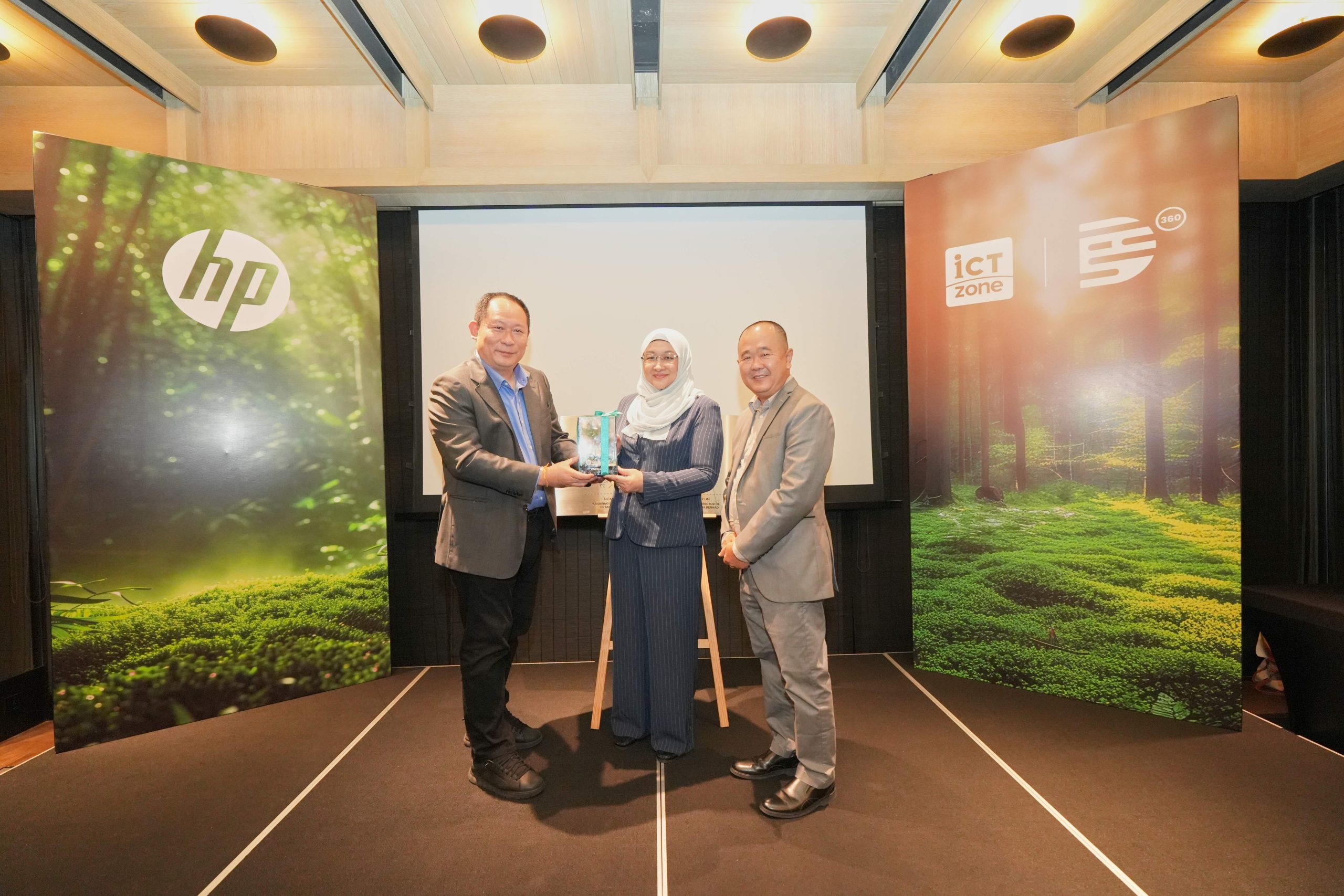KUALA LUMPUR, July 4 – Datuk Nor Hayati Binti Awang, Deputy Secretary General of the Ministry of Natural Resources and Environmental Sustainability (NRES) said that the government is looking into revising existing policies and is striving to transition Malaysia from a traditional linear economy to a circular economy in order to embrace the trend of low carbon emissions.
“In today’s rapidly developing digital world, the usage of electronic devices has transformed our lives tremendously. This technological revolution has led to an expansion of the carbon footprint and a surge in the amount of e-waste. How to deal with e-waste has become an important issue.” she said this when delivering a speech at the launch ceremony of Malaysia’s first Carbon Neutral Computing Services (CNCS) for HP Malaysia and ICT Zone Asia Berhad at the RuMa Hotel in Kuala Lumpur this morning.
The event was attended by Tommy Lim, managing director and CEO of ICT Zone Asia Berhad, Alex Tan, managing director of HP Malaysia as well as heads of information technology (IT) departments from a number of public listed companies and government agencies.
She pointed out that the government has formulated the National Sustainable Consumption and Production Blueprint 2016, the National Solid Waste Management Policy 2016, the Malaysia Plastics Sustainability Roadmap 2021-2030, and the 2020-2030 National Cleanliness Policy 2020-2030. Corporations and SMEs can manage e-waste through the implementation of a circular economy.
She said the government will balance the economic needs and public welfare while pursuing the goal of zero greenhouse gas emissions. The government’s goal is to identify and encourage affordable solutions that benefit the public, even in the face of economic uncertainty.
She pointed out that in accordance with the Nationally Determined Contribution Roadmap (NDC) and the Long-term Low Emissions Development Strategy (LT-LEDS), Malaysia has determined the path towards net-zero GHG emissions and hopes to leave behind a better future starting with solid policies that will continue through the decades.
Mohan Kumar, the business manager for Services, Greater Asia Market of HP, explained, “CNCS helps you achieve your corporate sustainability goals and drive towards a low-carbon future by offsetting the end-to-end carbon footprint of your HP PCs.”
“You can choose to offset the carbon footprint from product manufacturing, assembly, and transportation, as well as the carbon footprint of the device’s end-to-end lifecycle by applying carbon offsets,” he said.
When touched on the topic of building a sustainable brand, Tommy Lim, Managing Director & CEO of ICT Zone Asia Berhad said “Environmental focus, social responsibility, and transparency and communication are the key pillars to building a sustainable brand. A sustainable brand looks beyond making profit and should view other values such as the environmental impact and ethical supply chains with equal importance.”
“ICT Zone is the first Malaysia-based company that HP partnered with to launch CNCS. This partnership is a strong testimonial to our commitment to being the leader in the technology financing sector. HP’s carbon-neutral PCs will be available through our DaaS 360 subscription, where we offer a customizable seven-in-one pricing package to our customers,” he said.
Meanwhile, Hiro Chai, the speaker of the panel discussion and director of Mitsusho Sdn Bhd, highlights that “Decarbonization is inevitably the key component of environmental sustainability for PLCs and mid-tier companies moving forward. For instance, large-cap PLCs are required to comply with mandatory carbon emission reporting, showcasing their commitment to environmental transparency starting December 31, 2024.”
He also touched on the decarbonization trend across the world: “As European countries have progressed to the next phase of their decarbonization journey (i.e., from the Emission Trading Scheme extended to the Carbon Border Adjustment Mechanism), the ASEAN region is also experiencing swift changes, particularly in establishing carbon exchanges in their capital markets.”

